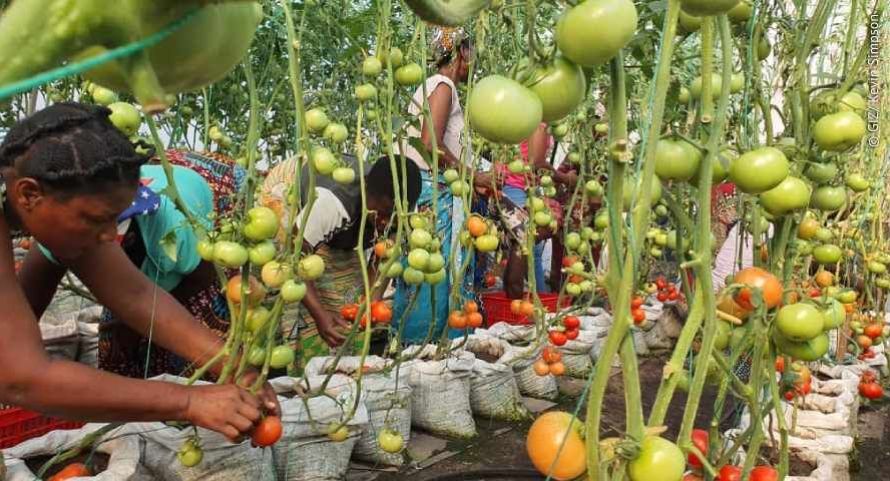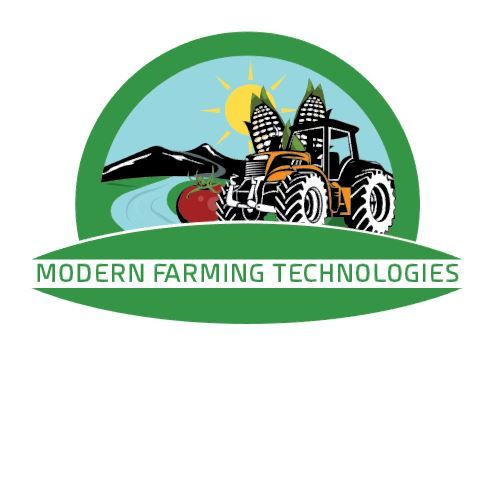Greenhouses create secure jobs for women

The challenge
Malawi is one of the poorest countries in the world according to its gross domestic project. Nearly two-thirds of the population depend on subsistence farming for their livelihoods. People cultivate their fields in rain-fed agriculture, which is becoming increasingly unprofitable due to climate change and soil degradation. In looking for alternative forms of cultivation, most people lack access to electricity and means of production, especially irrigation pumps, cold storage and mobility. Accordingly, post-harvest losses range from 30 to 50 percent. Women face further economic uncertainties, particularly in the north, because they have no rights for land use and cultural norms restrict their freedom of movement.
The goal
That’s why the Malawian organization, Modern Farming Technologies (MFT), is targeting primarily women with its Renewable Energy for Agriculture project. With the help of solar-irrigated greenhouses, the cooling of the food produced and goods marketed, MFT is working to enable women to increase their income by being able to produce year-round. In the greenhouses, the women farmers are able to produce larger quantities in a smaller area, thereby significantly reducing their dependence on rain-fed agriculture. The higher yields subsequently give them better access to national markets for agricultural products. The members of the women’s cooperative Ujazi Cultural Conservation Group in Chintheche on Lake Malawi are expected to benefit most from the measures. Within two years, MFT aims to create more than 135 long-term jobs for women there through the project.
Our partners
MFT has been involved exclusively in northern Malawi since 2011. The non-profit company is owned by Malawi Fruits, a Scottish non-governmental organization (NGO) working for sustainable development in Malawi. MFT has implemented numerous irrigation projects in recent years and installed greenhouses in the regions of Mzuzu (where MFT is headquartered) and Chintheche, which are already producing comparatively high yields for 345 farmers. Practical Action is a British NGO with years of experience in the renewable energy sector, as well as in developing delivery models and marketing plans. In collaboration with MFT, the organization has already installed over 30 greenhouses in northern Malawi.
The approach
As a first step, MFT will install 15 greenhouses and a solar drip irrigation system which will help 45 women from the cooperative to grow high-quality vegetables, herbs and fruits throughout the year in close coordination with potential buyers. MFT is training the women to use a harvest calendar and cultivation plan, among other tools to improve their productivity with the goal to help them to develop an understanding of the entire value chain so they can take control of their businesses in the long term. Upon harvest, the women at the 15 green houses will deliver their produce to MFT, which stores the food in a solar-powered cold storage facility and markets the products to restaurants, lodges and exporters. These market stakeholders require consistently high quality and the women farmers work to achieve this. The women in the cooperative see themselves as a unit and share labor, income and ownership of the facilities. They use the facilities and pay rent for them together. As soon as the plants are paid off, they become the property of the cooperative. The women are expected to work only ten hours a week for the project, so they still have time for other activities. MFT estimates that each woman in the cooperative earns nearly 160 euros for six days per month, a 300 percent increase in income. If the plants become the property of the cooperatives, the women can earn as much as 500 percent more than usual after four years, according to MFT.
Nhkata Bay District
Productive Use and Training and Awareness Raising
Women, local population
11/2021-04/2023



